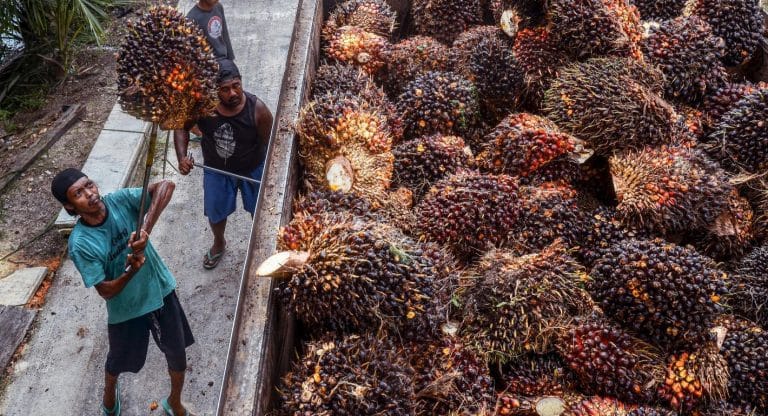🎧 Listen to This Article
Indonesia, the world’s largest palm oil producer, has raised its crude palm oil (CPO) export tax from 7.5% to 10% in a strategic move to fund its ambitious B40 biofuel program and replanting efforts, according to an official notice from the Ministry of Finance.
Effective May 17, the tax hike comes as the government looks to maintain the financial sustainability of its biodiesel mandate, which requires 40% palm oil blending in diesel fuel. The revised tariff, based on the reference price of CPO, also affects other downstream palm products, per a report by Asia News Network.
Industry Warnings Over Competitiveness and Smallholder Impact
Industry leaders, however, warn that the move could undermine Indonesia’s global competitiveness in palm oil markets. Eddy Martono, Chairman of the Indonesian Palm Oil Association (GAPKI), noted that the palm oil sector already faces a trio of export-related charges: the Domestic Market Obligation (DMO), the export levy (PE), and the export tax (BK).
“The total financial burden on the palm oil industry has reached $221 per tonne,” Martino said. “With the new tax rate, this burden will certainly increase. However, we’re still calculating the final impact.”
GAPKI has expressed concern that higher taxes could depress domestic CPO prices, reducing smallholder income, particularly during high price volatility for fresh fruit bunches (FFB).
Formal Appeal for Delay
In a formal letter to Finance Minister Sri Mulyani Indrawati, GAPKI urged the government to delay implementation of the tax hike. The letter warns that additional levies could further weaken Indonesia’s palm oil exports at a time of geopolitical uncertainty, particularly amid the unresolved U.S.-China trade war and regional instability.
The Public Service Agency for Plantation Fund Management (BLU BPDP) confirmed the request is under review by the relevant ministries. However, the Ministry of Finance had not responded at the time of reporting.
Biofuel Policy and Production Trends
Indonesia’s B40 policy, introduced in January 2025, is expected to require 15.62 million kilolitres of CPO annually. This comes as the country saw a decline in palm oil production from 50.1 million tonnes in 2023 to 47.8 million tonnes in 2024, further tightening supply. GAPKI has warned that this could reduce CPO export volumes by up to 2 million tonnes.
While the government emphasizes sustainability and energy independence, industry players advocate for a more balanced approach considering global market dynamics and smallholder welfare.
For further details, clarification, contributions, or any concerns regarding this article, please get in touch with us at editorial@tax.news. We value your feedback and are committed to providing accurate and timely information. Please note that our privacy policy will handle all inquiries.



